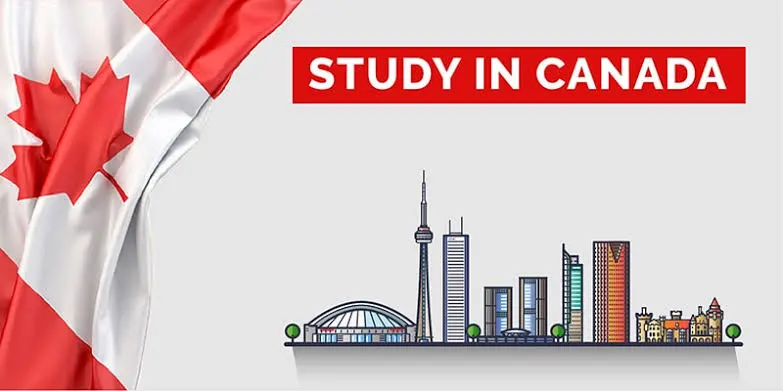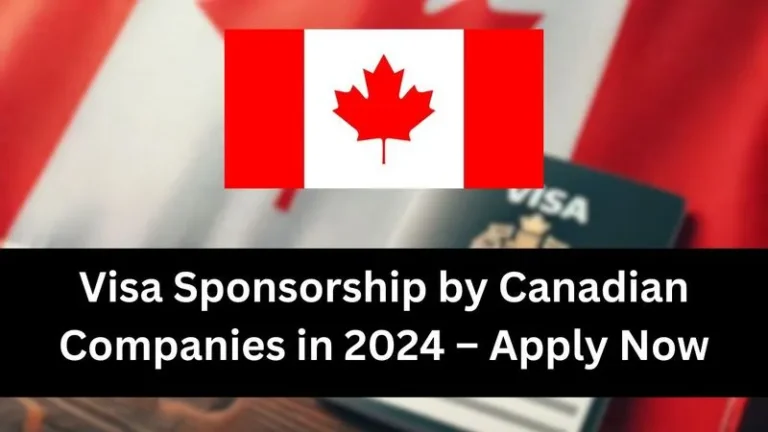Canada Student Visa: A Complete Guide to Obtaining a Student Visa
Canada is an amazing place for students all over the world. It’s known for its stunning landscapes, great education, and diverse communities. Studying in Canada means combining top-notch education with a mix of different cultures. To start this exciting journey, it’s important to understand how to get a Canada Student Visa. This guide is here to help, covering everything from requirements to essential steps to make your dream of studying in Canada come true.
Why a Canadian Student Visa Matters
Getting a Canadian student visa is like unlocking a door to an incredible educational adventure. Here are some cool things about it:
- Access to Great Education: Canada has awesome universities and colleges with tons of different programs.
- Quality of Life: Living in Canada is fantastic! It’s safe, the healthcare is great, and the way of life is top-notch.
- Multicultural Experience: Canada is filled with people from all over the world. This helps you understand different cultures and make friends from everywhere.
- Post-Graduation Opportunities: Finishing your studies in Canada can open doors to staying there permanently.
Types of Canadian Student Visas
Knowing about the different types of student visas in Canada is important:
- Study Permit: This is the most common visa, allowing you to study in Canada for the whole program.
- Designated Learning Institution (DLI): You need this for a study permit. It’s basically a letter saying a Canadian school accepted you.
- Temporary Resident Visa (TRV): Some people need a TRV in addition to a study permit to enter Canada.
- Electronic Travel Authorization (eTA): If you’re from a country that doesn’t need a visa, you might need this to fly to Canada.
Eligibility Criteria
To get a Canadian student visa, you need to meet some important criteria:
- Acceptance to a Designated Learning Institution (DLI): Get an acceptance letter from a Canadian school.
- Sufficient Funds: Show that you have enough money to cover tuition, living expenses, and your trip back home.
- Clean Criminal Record: Make sure you don’t have a criminal record. You might need a police clearance certificate.
- Good Health: Undergo a medical examination in some cases to ensure good health.
- Proof of Intent to Leave: Convince immigration authorities that you plan to leave Canada after you finish studying.
- Study Plan: Make a detailed plan about what you want to study and your future goals.
- Additional Documents: Give any other documents they ask for, like passport photos and proof that you’ll go back to your home country.
The Canadian Application Process
Applying for a Canadian student visa involves a detailed step-by-step process:
- Acceptance to a Designated Learning Institution (DLI): First, secure admission into a Canadian school.
- Gather Required Documents: Collect all the papers you need, like your acceptance letter, proof of money, passport photos, passport, and other important stuff.
- Online or Paper Application: Go to the Immigration, Refugees, and Citizenship Canada (IRCC) website to apply online or send a paper application to a visa center.
- Biometrics: This means giving your fingerprints and a photo depending on where you’re from.
- Pay the Application Fee: Submit the non-refundable application fee, keeping a copy of the payment receipt.
- Medical Examination: Undergo a medical examination if required to ensure good health.
- Police Clearance Certificate: Obtain a police clearance certificate demonstrating a clean criminal record.
- Study Plan: Make a plan for what you’re going to study and why.
- Proof of Sufficient Funds: Prove financial capability to cover tuition, living expenses, and return transportation.
- Passport Photos: Provide the required number of passport-sized photos meeting Canadian visa specifications.
- Proof of Ties to Home Country: Demonstrate ties to your home country indicating intent to leave Canada after studies.
- Language Proficiency: Prove proficiency in English or French depending on your course and institution.
- Submit the Application: Complete and submit the application with all required documents and fees.
- Wait for Processing: Be prepared for potential processing delays.
- Attend an Interview (if required): Attend an interview at a Canadian embassy, consulate, or Visa Application Center if necessary.
- Receive the Study Permit: If approved, you will receive a study permit with possible specific conditions.
Conditions of a Study Permit
Adhering to specific conditions on your study permit is crucial:
- Full-Time Enrollment: Maintain full-time enrollment in your program of study.
- Study at a DLI: Attend the designated learning institution you were accepted to.
- Leave Canada After Graduation: Depart within 90 days post-studies, unless applying for an extension or transitioning to a work or visitor visa.
- Keep Study Permit Valid: Ensure the study permit remains valid throughout your program.
- Work Off-Campus: Some study permit holders may be eligible to work off-campus for up to 20 hours per week during the academic year.
- Temporary Resident Visa (TRV) or Electronic Travel Authorization (eTA): If from a visa-exempt country, obtain a TRV or an eTA to enter Canada.
Post-Graduation Work Permits
Canada offers post-graduation work permits (PGWPs) to international students completing a program at a designated learning institution. PGWPs enable work in Canada for a specified period, providing valuable Canadian work experience, with the length depending on the program’s duration, with a maximum validity of three years.
Provincial Nominee Programs (PNP)
Provincial Nominee Programs (PNPs) provide an alternative pathway to permanent residency in Canada. Some provinces offer specific immigration streams for international graduates, making PNPs a valuable option for those intending to settle in a particular province post-studies.
Tips for a Successful Canadian Student Visa Application
For a smooth application process:
- Plan Ahead: Initiate the application well in advance to accommodate potential delays.
- Double-Check Documents: Ensure all required documents are complete, accurate, and meet specified criteria.
- Seek Professional Guidance: Consider consulting an immigration expert or lawyer specializing in student visas for personalized advice.
- Maintain Legal Status: While studying in Canada, adhere to legal status conditions and study permit guidelines.
- Network and Explore: Maximize your time in Canada by networking, attending events, and exploring the country.
- Seek Post-Graduation Opportunities: Research PGWP options and explore potential pathways to permanent residency.
Conclusion
Getting a Canadian student visa is a big step to make your education dreams come true. Learn about the process, meet the requirements, and know what comes after. Canada is waiting for you, offering a chance to grow in a diverse and exciting place. Get ready for a cool adventure in Canada!




